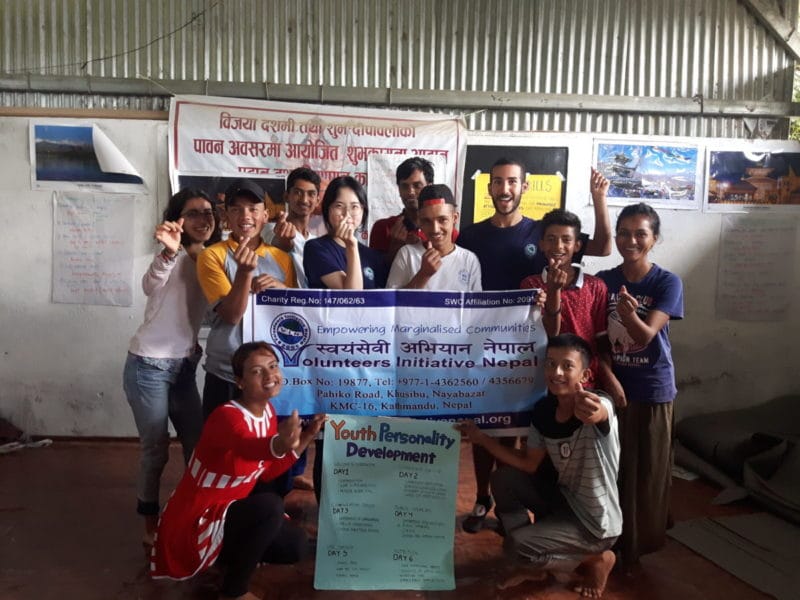
What has ViN achieved in Youth Empowerment Programme by now?
Youth Clubs & Life Skills
T. Beneficiaries
Entrepreneurship Development
English & Career Development
what is Youth Empowerment Programme?
The Youth Empowerment Programme in Nepal has been designed to address the current needs of Nepalese youth between 16 to 40 years in the country’s workforce. The 16-40 years age group is considered the youth population in Nepal (Nepal’s 2010 National Youth Policy). According to the Census 2011, this age group forms nearly 40.3% of the total population and faces significant challenges as it merges into adulthood. This is a huge workforce, and the government of Nepal could have nurtured, motivated, and involved to achieve sustainable development of the country, rather than let it be a greatly missed opportunity.
Nepalese youth have always played a very important role in cases of political change. The youth participated actively in the various political reforms of Nepal whether it was in the formation of a multiparty democracy or in the case of Maoist insurgency or while ruling out monarchy from the country. All these political transformations took place and became successful in the leadership of young politicians. Yet, the senior politicians have not considered this factor. Whether it be the State or the political parties, none of these stakeholders have given these youths a chance to exhibit their potential in politics or in other forms such as entrepreneurship.
The government has prepared a National Youth Policy in 2015. Yet, to implement this policy effectively the Nepalese youth are not provided sufficient training and employment opportunities. Therefore, skilled and unskilled workers, over 50% of the Nepalese youth of this age group, leave for foreign countries, casting a black shadow over the future of Nepal. 25% of Nepal’s GDP is contributed by the remittance the youth send back from the Middle East, India and elsewhere.
On the contrary, to conduct any developmental work, Nepal has to depend on Indian workers. Nepal’s GDP is barely 30 billion US dollars (2018) and Nepal has over 12 billion dollars in trade deficit (2018). This deficit has largely been covered by the Nepalese youth workers abroad. If the youth stayed in Nepal and became entrepreneurs, Nepal could export more goods to foreign countries and balance the trade deficit. The youth, however, will not stay in the country without a concrete strategy and programs.
The goal of the Youth Empowerment Programme is to empower youth socially and economically through education, life skills, and entrepreneurship development so that the youth can contribute to achieving sustainable development goals for Nepal.
How does VIN Empower Nepalese youth?
Establishing clubs for youth participation and active citizenships: Through a baseline survey, we have found that most of the communities where VIN works, do not have any formal institutions where youth can unite and practice their active citizenships. We have now formed quite some youth clubs where the youth can actively participate in creative, educational, and social activities in youth empowerment activities. The youth clubs include youth from minority and disadvantaged groups. We facilitate youth participation and active citizenship for increasing social cohesion and reducing the democratic deficit, by teaching youth social and democratic values. Youth participation is an essential part of democracy, as excluding young people from decision-making would mean excluding a large part of the population. Youth participation and active citizenship increases the effectiveness and sustainability of projects and processes. Active citizenship and youth participation contribute to a civil society by building a sense of belonging, solidarity, justice and responsibility, caring for people in need, and sensitivity towards people who are different.
Educating youth on their rights and life skills – There is a gap between what youth learn in school and what they actually need in real life practice. So to enhance knowledge, life skills and positive attitude (KSA) level of youth, we conduct relevant training on their rights and life skills. We have identified a set of essential life skills like self-awareness, empathy, critical thinking, creative thinking, decision making, problem solving, effective communication, interpersonal relationships, coping with stress, coping with emotions and public speaking. We deliver all these life skills lessons through the youth clubs. So the youth clubs are a fundamental platform for youth to practice their rights and life skills.
By inspiring youth for volunteering activity: The Nepalese youth can participate in year round volunteering activities with us free of charge. We inform youth to volunteer in our charity projects through on site presentations, websites and social media. By volunteering in charity activities, they can use their academic knowledge into real life practice, gain life skills and build confidence. Volunteering is a rewarding opportunity by which they can shape their future path.
By increasing employability through training on income generation and entrepreneurship development: We carry out a lot of activities for youth income generation and entrepreneurship development. For this, we collect the list of available youth from disadvantaged and socially excluded communities. We deliver soft skills training on entrepreneurship and identify who is passionate for what kind of services and business skills. Some youth may be good for service related professions (such as teachers and nurses) and others for more hands on activities. For example, working in agriculture and dairy production, animal husbandry and beekeeping. As well as executing trade professions such as plumbing and electrics, mechanics, building, carpentry, solid plastering, wall and floor tiling, etc.

 Intern
Intern Donate
Donate Sponsor a child
Sponsor a child Partner
Partner Promote
Promote Fundraise
Fundraise Fellowships and staff exchanges
Fellowships and staff exchanges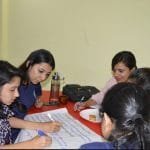
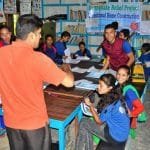
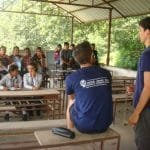
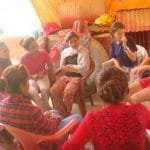
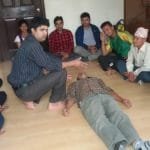

 Member of
Member of